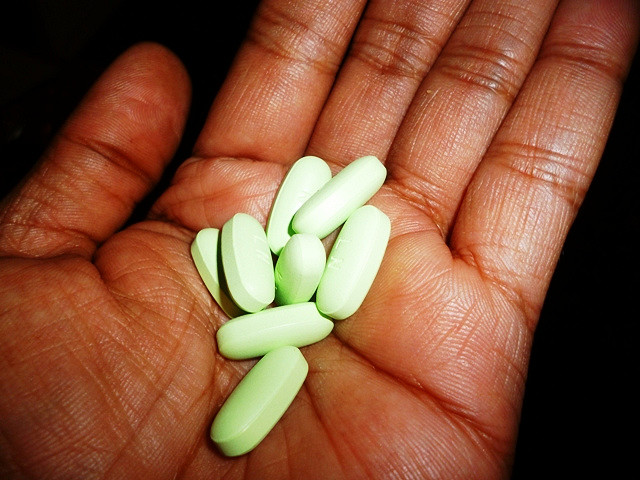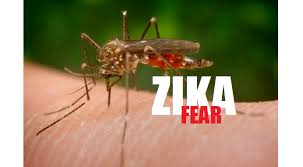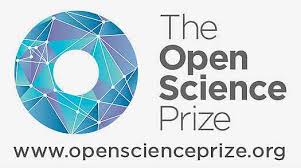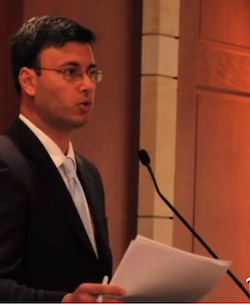 More than two months after Hurricane Harvey submerged much of metropolitan Houston, recovery is under way across the city. Residents and volunteers are gutting and restoring flooded homes. Government agencies and nonprofit organizations are announcing cleanup programs and developing plans to distribute relief funds. But many questions remain about impacts on public health. What contaminants did floodwaters leave behind? How many people are being exposed to mold – which can grow rapidly in damp, humid conditions – as they repair their homes? Will there be an increase in Zika, West Nile or other vector-borne diseases as mosquito populations recover? Or an uptick in reported cases of other illnesses?...
More than two months after Hurricane Harvey submerged much of metropolitan Houston, recovery is under way across the city. Residents and volunteers are gutting and restoring flooded homes. Government agencies and nonprofit organizations are announcing cleanup programs and developing plans to distribute relief funds. But many questions remain about impacts on public health. What contaminants did floodwaters leave behind? How many people are being exposed to mold – which can grow rapidly in damp, humid conditions – as they repair their homes? Will there be an increase in Zika, West Nile or other vector-borne diseases as mosquito populations recover? Or an uptick in reported cases of other illnesses?...
 “Everyone is doing sequencing, but most people aren’t able to analyze their sequences as well or as quickly as they might want to,” Bedford said. “We’re trying to fill in this gap so that the World Health Organization or the U.S. Centers for Disease Control and Prevention — or whoever — can have better analysis tools to do what they do. We’re hoping that will get our software in the hands of a lot of people”...
“Everyone is doing sequencing, but most people aren’t able to analyze their sequences as well or as quickly as they might want to,” Bedford said. “We’re trying to fill in this gap so that the World Health Organization or the U.S. Centers for Disease Control and Prevention — or whoever — can have better analysis tools to do what they do. We’re hoping that will get our software in the hands of a lot of people”...
 Arguing that antimicrobial resistance (AMR) threatens to erase decades of progress in medicine, public health, and food security, a group of global health experts is urging the United Nations (UN) to set global targets for reduced antibiotic consumption. In a commentary published yesterday in Science, the authors argue that countries should aim to consume no more than the current median global level of antibiotics (8.54 defined daily doses per capita per year), an amount they say would reduce global antibiotic use by more than 17.5%...
Arguing that antimicrobial resistance (AMR) threatens to erase decades of progress in medicine, public health, and food security, a group of global health experts is urging the United Nations (UN) to set global targets for reduced antibiotic consumption. In a commentary published yesterday in Science, the authors argue that countries should aim to consume no more than the current median global level of antibiotics (8.54 defined daily doses per capita per year), an amount they say would reduce global antibiotic use by more than 17.5%... In the weeks following Hurricane Irma, parts of Florida have been awash in millions of gallons of sewage. Meanwhile, in Texas, oil refineries and chemical plants have dumped a year’s worth of cancer-causing pollutants into the air following Hurricane Harvey. In both states, doctors are on the lookout for an uptick in respiratory problems, skin infections, and mosquito-borne diseases brought on by the water and mold the storms left behind...
In the weeks following Hurricane Irma, parts of Florida have been awash in millions of gallons of sewage. Meanwhile, in Texas, oil refineries and chemical plants have dumped a year’s worth of cancer-causing pollutants into the air following Hurricane Harvey. In both states, doctors are on the lookout for an uptick in respiratory problems, skin infections, and mosquito-borne diseases brought on by the water and mold the storms left behind... President Trump proposed a US$54 billion military budget increase to solidify the security of our nation. However, the government also recognizes pandemic threats as an issue of national security – one that knows no borders. In the last four years, we have faced the Ebola epidemic – contained after significant loss of life – and Zika, which is still not contained. Collectively, we will feel these effects for a generation, while children born with Zika-related defects and their families will feel the effects every day of their lives...
President Trump proposed a US$54 billion military budget increase to solidify the security of our nation. However, the government also recognizes pandemic threats as an issue of national security – one that knows no borders. In the last four years, we have faced the Ebola epidemic – contained after significant loss of life – and Zika, which is still not contained. Collectively, we will feel these effects for a generation, while children born with Zika-related defects and their families will feel the effects every day of their lives... A group of Argentine physicians claim that the sudden microcephaly outbreak in Brazil was not caused by the Zika virus, but by a larvicide injected into the country's water supplies...The chemical, which is known as Pyriproxyfen, was used in a massive government-run program tasked to control the mosquito population in the country. Pyriproxyfen is a larvicide manufactured by Sumitomo Chemical, a company associated with Monsanto.
A group of Argentine physicians claim that the sudden microcephaly outbreak in Brazil was not caused by the Zika virus, but by a larvicide injected into the country's water supplies...The chemical, which is known as Pyriproxyfen, was used in a massive government-run program tasked to control the mosquito population in the country. Pyriproxyfen is a larvicide manufactured by Sumitomo Chemical, a company associated with Monsanto. A prototype online platform that uses real-time visualization and viral genome data to track the spread of global pathogens such as Zika and Ebola is the grand prize winner of the Open Science Prize. The international team competition is an initiative by the National Institutes of Health, in collaboration with the Wellcome Trust and the Howard Hughes Medical Institute (HHMI). The winning team, Real-time Evolutionary Tracking for Pathogen Surveillance and Epidemiological Investigation, created its nextstrain.org prototype to pool data from researchers across the globe, perform rapid phylogenetic analysis, and post the results on the platform’s website...
A prototype online platform that uses real-time visualization and viral genome data to track the spread of global pathogens such as Zika and Ebola is the grand prize winner of the Open Science Prize. The international team competition is an initiative by the National Institutes of Health, in collaboration with the Wellcome Trust and the Howard Hughes Medical Institute (HHMI). The winning team, Real-time Evolutionary Tracking for Pathogen Surveillance and Epidemiological Investigation, created its nextstrain.org prototype to pool data from researchers across the globe, perform rapid phylogenetic analysis, and post the results on the platform’s website... The fear of reproducing society's prejudices through computer algorithms is being hotly discussed in both academic publications and the popular press. Just a few of the publications warning about bias in predictive analytics include the New York Times, the Guardian, the Harvard Business Review, and particularly a famous and hotly contested article by Propublica on predictions of recidivism among criminal defendants...
The fear of reproducing society's prejudices through computer algorithms is being hotly discussed in both academic publications and the popular press. Just a few of the publications warning about bias in predictive analytics include the New York Times, the Guardian, the Harvard Business Review, and particularly a famous and hotly contested article by Propublica on predictions of recidivism among criminal defendants... Health and Human Services Secretary Tom Price, M.D. today announced the selection of five entrepreneurial projects for investment by the Secretary’s Ventures Fund (HHS Ventures). The projects were chosen from across HHS and are part of the latest round of funding and support designed to advance the Department’s innovation agenda... HHS Ventures is a highly competitive effort that provides growth-stage funding and support to HHS employees with proven ideas for how to dramatically improve their office, agency, or the Department’s ability to carry out its mission...
Health and Human Services Secretary Tom Price, M.D. today announced the selection of five entrepreneurial projects for investment by the Secretary’s Ventures Fund (HHS Ventures). The projects were chosen from across HHS and are part of the latest round of funding and support designed to advance the Department’s innovation agenda... HHS Ventures is a highly competitive effort that provides growth-stage funding and support to HHS employees with proven ideas for how to dramatically improve their office, agency, or the Department’s ability to carry out its mission... How medical care can be substantially improved through a full spectrum view of all factors that affect health was the topic of Payam Etminani's presentation at the 2019 IDGA Veterans Benefits Conference in Washington D.C. Etminani, the CEO of Bitscopic, argued that the ability to view all health data including social, environmental and genomic information in addition to the traditional clinical measures (vital signs, blood work, history of illness etc), would lead to significant improvement in care. Etminani described how recent advances in Big Data and Artificial Intelligence (AI) make combining and using these large and widely varied sets of information possible.
How medical care can be substantially improved through a full spectrum view of all factors that affect health was the topic of Payam Etminani's presentation at the 2019 IDGA Veterans Benefits Conference in Washington D.C. Etminani, the CEO of Bitscopic, argued that the ability to view all health data including social, environmental and genomic information in addition to the traditional clinical measures (vital signs, blood work, history of illness etc), would lead to significant improvement in care. Etminani described how recent advances in Big Data and Artificial Intelligence (AI) make combining and using these large and widely varied sets of information possible.